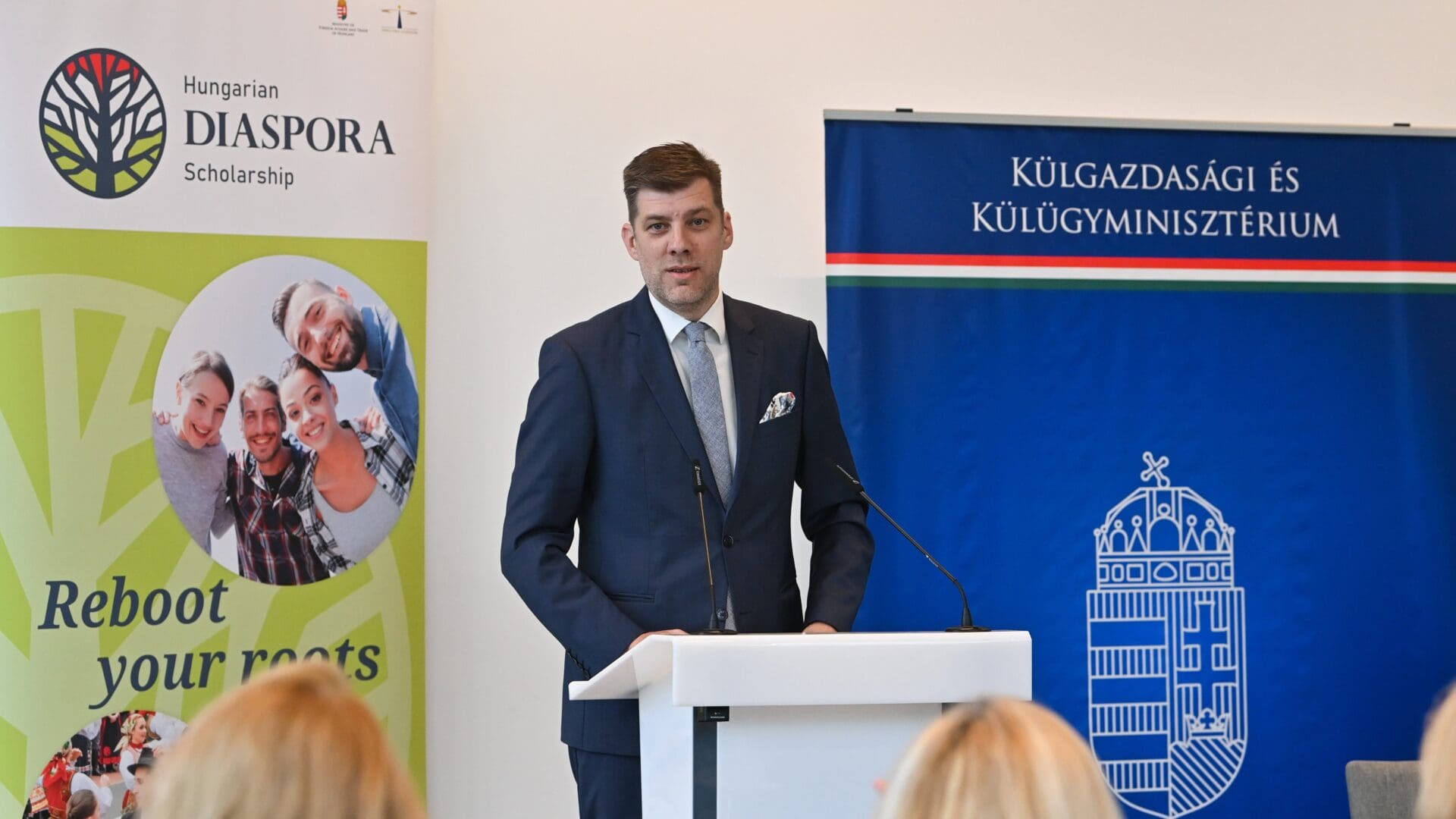Worldwide, Hungarian weekend schools are strengthening, and the number of their students is increasing, Deputy State Secretary in the Prime Minister’s Office Péter Szilágyi said in Budapest on Friday.
The deputy state secretary responsible for national policy highlighted at a methodology conference for voluntary instructors of Hungarian weekend schools that the schools have returned to their pre-pandemic levels of enrolment and in many places have even exceeded those levels.
He reported being aware of a total of 250 schools and children’s communities in the diaspora, and being in active contact with about 150 Hungarian weekend schools. Among these are individual institutions and networks of schools. He added that the number of students varies according to the size of the institutions. Hungarian weekend schools are also emerging in the farthest corners of the world, he noted, citing new locations such as Tokyo, Abu Dhabi, and Singapore, where regular weekend Hungarian school activities were launched last year. Péter Szilágyi highlighted the strengthening of the Hungarian school in Colombia, and expressed his thanks to all instructors in Hungarian weekend schools. He mentioned that despite the restrictions due to the pandemic and economic difficulties, contact, support, and programmes have never ceased with the diaspora communities.
Referring to this year’s theme, the Year of the Caring Nation, he said that the Hungarian nation is caring, and
the government has proven over the past 13 years that it takes care of its communities,
including those of the diaspora. He reminded the audience that the administration has been announcing tenders specifically for the diaspora since 2018 and have unified the framework since 2021. This year, they renamed the grant programme, and now it is within the Caring Nation framework that the diaspora subprogramme supports the activities of diaspora organisations and Hungarian weekend schools.
Hungarian weekend schools can apply for support for the rental of classrooms, office or storage space, procurement of teaching aids (technical and material equipment), acquisition, publication, and development of professional and methodological aids and textbooks. Contributions may also be requested for the salaries and travel expenses of instructors, as well as for the creation and development of websites. Support can be provided for the organisation of teacher training, participation in training courses, preparation for the Hungarian matriculation exam and/or language exams, and the organisation of programmes related to language education. Applications can be submitted until 5 June and the implementation period is from 1 January until 31 December.
It was also mentioned at the conference that the Kőrösi Csoma Sándor Programme was launched again in a new form, and applicants for the scholarship could submit their applications based on thematic tasks. Péter Szilágyi also highlighted the professional cooperation with the Apáczai Csere János Faculty of the Széchenyi István University in Győr regarding accredited training for those teaching Hungarian language and culture in the diaspora. The first cohort received their diploma in February 2022, and 25 people are participating in the 2022/23 training. He also called attention to a new opportunity for organising workshops for teachers at weekend Hungarian schools, which will be implemented regionally for the first time, expectedly this summer. The deputy state secretary also mentioned the Welcome Office, which is a new opportunity for those of Hungarian ancestry who permanently or temporarily relocate to Hungary. The office provides one-stop service over the phone 24/7 for all matters related to resettlement (such as social insurance, pension payments, and diploma recognition).







